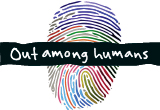 If you anguish
If you anguish
over what claims you can believe
and whom you should trust in the debate over climate change, pull up a stool and join the club.
There’s a scientist named Neal who often escapes from his lab to work in the windows of our humble coffee house. He deals with the biogeochemical transformations of organic carbon in surficial environments.
Neal’s good at explaining things.
He’ll walk you through the molecular makeup of the atmosphere and explain how solar energy penetrates our environment, raising temperatures.
You’ll learn that the thermal energy radiated back into space has a longer wavelength than energy coming in, and that it is trapped by carbon dioxide and other greenhouse gases. Earth heats up, ice shelves collapse, ocean currents get confused, etc. etc. Mostly it’s not good.
If you happen to be skeptical about climate risks (perfectly understandable what with certain preachers and talk radio and everything), Neal will challenge you to recognize one simple fact. And that is this:
Climate change projections are subject to exhaustive peer review.
Peer review pits independent research teams against one another. They like nothing more than to debunk each other’s theories. They replicate experiments and triangulate computer modeling. It’s a barb-wired-enclosed process that attracts the best minds in the field. Reputations and front teeth hang in the balance.
Neal Blair is a professor in the departments of Earth and Planetary Sciences, and Civil and Environmental Engineering at Northwestern University. His work is cited internationally. He earned his Ph.D. at Stanford.
Neal’s among the 90 percent* or so of environmental and earth scientists who interpret the body of peer-reviewed data as proof that human activity is raising CO2 concentrations to dangerous levels.
Maybe some morning one of the scientists who dismiss climate change as a hoax — one of those in the small minority — will join us for a cup of coffee. We’d like nothing more than to put our phones on vibrate and listen to the peer-reviewed data on the other side of the debate. ![]()
* this percentage is often quoted as a higher number
